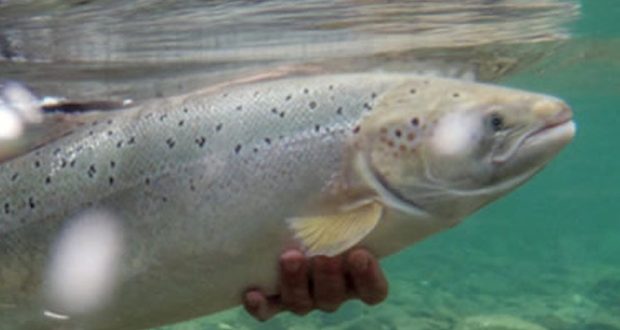Scientists from the Department of Fisheries and Oceans (DFO) have confirmed that escaped farmed salmon from aquaculture centres are breeding with wild salmon and producing offspring in many rivers in Newfoundland.
“We did find evidence of successful breeding between farmed and wild salmon,” said Department of Fisheries and Oceans scientist Ian Bradbury, presenting the unpublished study at an international aquaculture conference in St John’s on Sept. 20.
“Approximately a third of the individuals we sampled showed evidence of hybrid ancestry.”
Scientists studied thousands of fish in 18 rivers on the island’s south coast, and found evidence of interbreeding in 17 of them.
“It was widespread across a suite of the rivers that we looked at. I think there was only one river where we didn’t see evidence of hybridization,” said Bradbury.
It’s estimated that over the decades since the advent of aquaculture, more than 750,000 salmon have escaped from fish farms in the province. The new study sheds light on what happens to them in the wild.
Bradbury said while wild salmon populations in the rivers DFO studied are generally not thriving, the rivers with the fewest returns seemed to be the most vulnerable to farmed fish interbreeding.
“The consensus seems to be that the more interbreeding and introgression we see, the more population productivity goes down. So we do see an impact on population size,” he said.
Agencies/Canadajournal
 Canada Journal – News of the World Articles and videos to bring you the biggest Canadian news stories from across the country every day
Canada Journal – News of the World Articles and videos to bring you the biggest Canadian news stories from across the country every day



